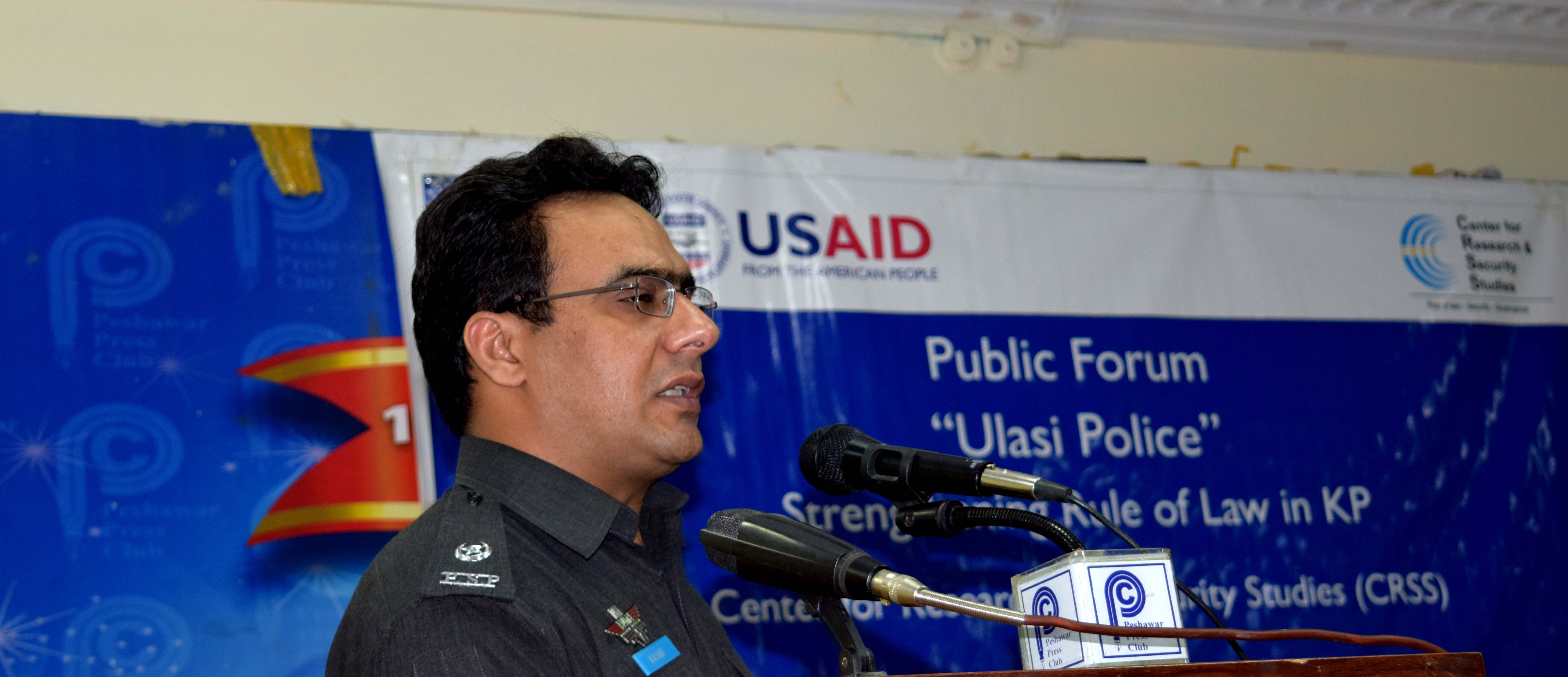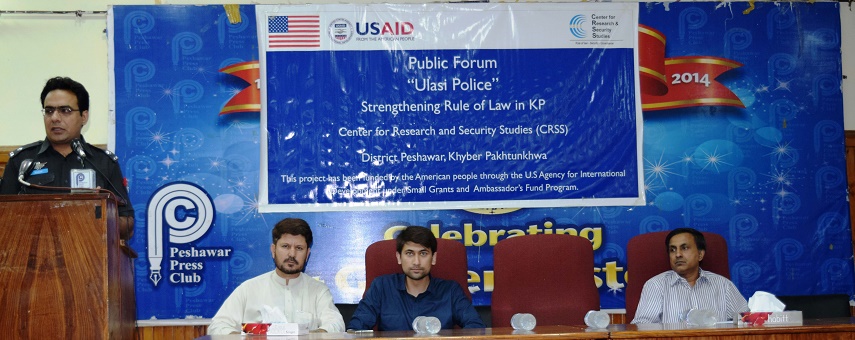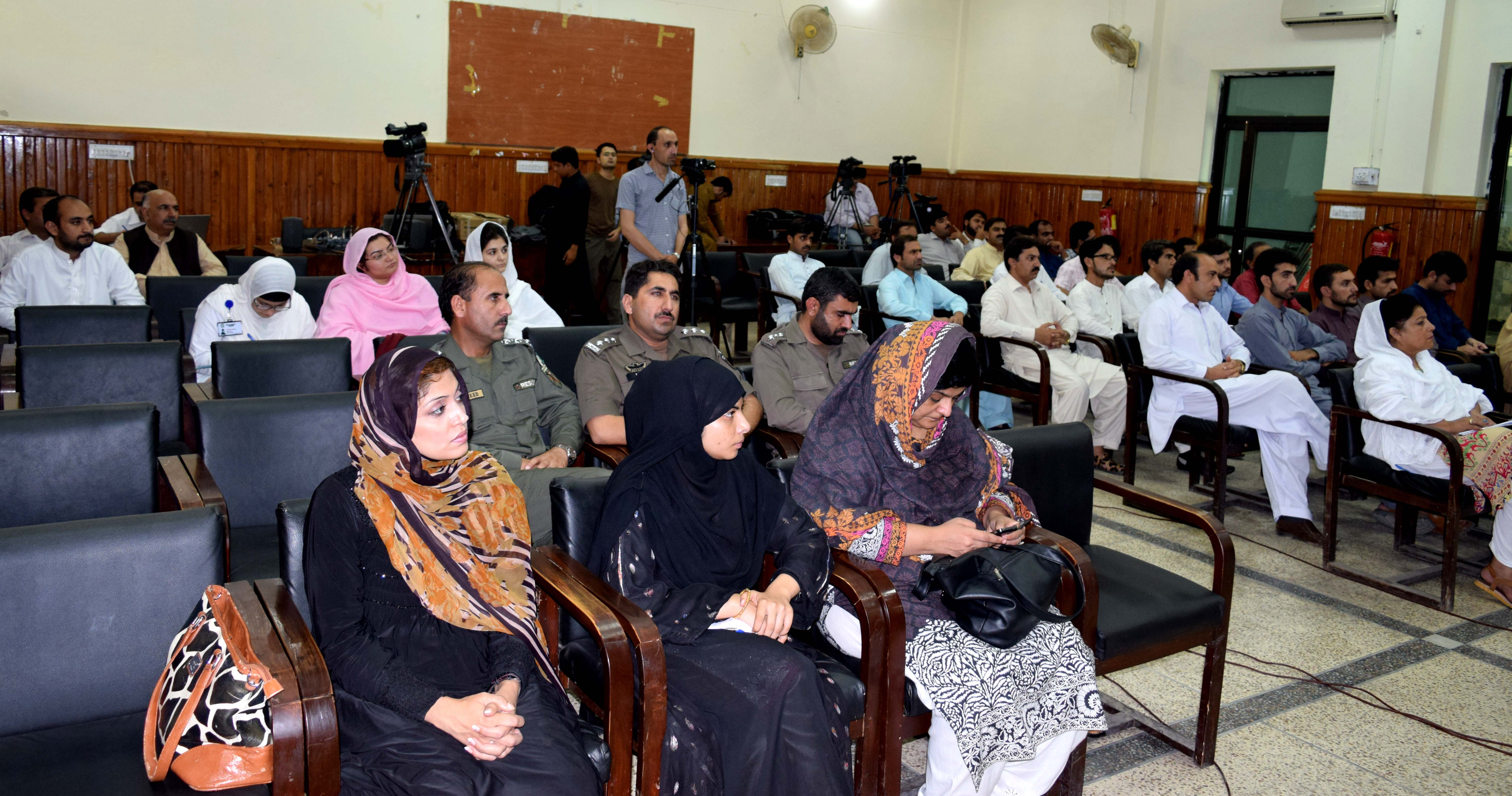The reformation of Police in Khyber Pakhtunkhwa was not an easy task given the challenges of War-on-Terror (WoT), but with the decrease in the militancy post 2012, and visionary police leadership, KP police successfully reformed its structure with several significant steps and services aimed at public service. The driving force of these initiatives was the vision of top police leadership, which had been transformed into practical implementation of all these reforms and made the department ever more accountable and transparent. The behavior of KP police was always better comparing to the other provinces due to the cultural values of the province.
These were the remarks made by Mr. Kashif Zulfiqar, Superintendent of Police (SP), Peshawar Cantt. during a public forum on police reforms at press club, Peshawar. Senior Journalist, Mr. Arshad Aziz also spoke on the occasion. The event was participated well by the members of community with diverse backgrounds including lawyers, local government representatives, media, academia and youth representatives. The forum was part of the project “Ulasi Police” an awareness and advocacy campaign undertaken by the Center for Research and Security Studies (CRSS) – as part of USAID Small Grants and Ambassadors’ Fund Program – to strengthen the rule of law in KP province by promoting and disseminating the significant police reforms aimed at incorporating local communities’ policing needs and international human rights standards. The endeavor aims to tackle the trust deficit between the public and police, help KP police become an accountable and community-focused police force.

SP Cantt., Mr. Kashif Zulfiqar said that the most salient feature of KP police reforms was the removal of political and bureaucratic influence over the department. As part of police reforms, realizing that the environment of police station carries a psychological effect and should be relieving and comforting to the visiting victims of crimes, several modern reporting rooms have been introduced in all major districts of the province. Model Police Stations are working quite effectively in the province. The feedback is encouraging enough for the CM to approve the establishment of 100 more model police stations in the province.
He said that improving police behavior towards the public was another challenge to develop the critical public-police linkages. KP Police, responding to this issue, has introduced Police Access Service (PAS) in the entire province. Police Assistance Line (PAL) is another dedicated facility with several centralized services for the public that they seek most often. The success is manifest in the fact that the service is being replicated in other provinces too.
The reform of Tennant Information System (TIS) has also been introduced to meet the growing militancy challenges in the province. The hallmark effort has successfully archived the database of 128,000 tenants across the district which has proved to be of significant resource in controlling crimes and terrorism.
The performance of Dispute Resolution Councils (DRCs) – an initiative at the core of community policing efforts – manifests in the public feedback insisting to refer their cases to this body of alternate dispute settlement. There is an independent panel with zero interference in its affairs even by the police except for the administrative support.
As part of long term reforms, KP police has given special attention to the capacity building needs of its personnel. Several training schools have been established in this regard. To improve the investigation skills, a school of investigation has been established with a whopping 6000 beneficiaries so far.
“The new police order 2016, promulgated by the governor, will hopefully, soon be enacted”, he concluded his presentation.
Mr. Arshad Aziz Malik, Senior Journalist said that the behavioral and attitudinal change was not just needed in the police but equally required in the public. The KP police reforms are quite benefiting to the commoners but unfortunately not being highlighted by the media. It should play its role in the dissemination of significant police reforms and help addressing the trust deficit between the public and police. “The senior police officers should be considerate of the needs of lower level police officials, and long duty hours of personnel working in the field should be revised”, he added.


